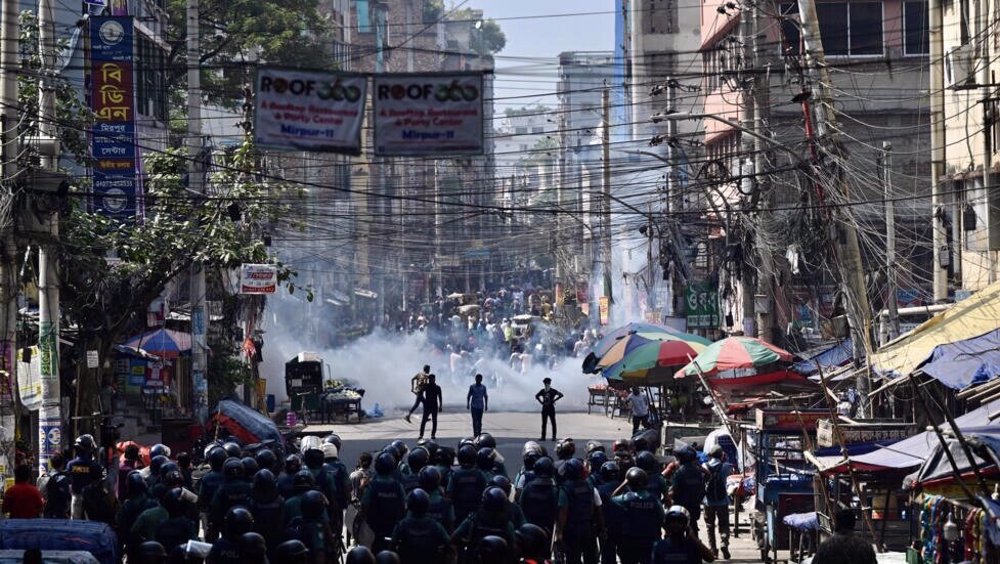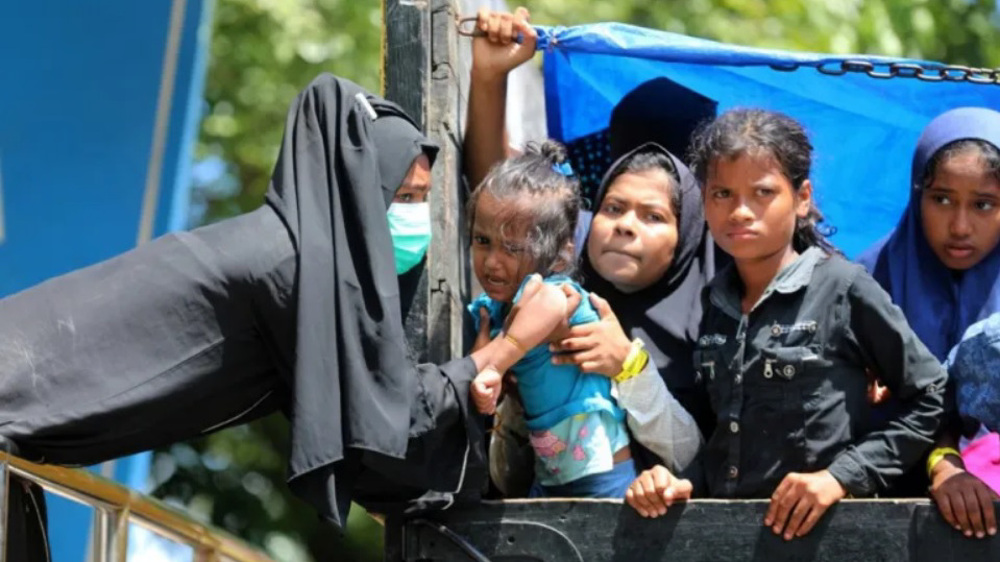In Bangladesh, 100s of garment workers fired for demanding pay raise
Hundreds of workers have been fired by garment factories in Bangladesh since demonstrations began in October for basic living wages.
Three labor unions representing half a million workers said many workers are also on the run, fearing arrest.
Representing the workers, the three unions, namely Bangladesh Garments and Industrial Workers Federation, National Garment Workers Federation and Bangladesh Garments Workers Unity Council, estimated that 1,000 to 5,000 workers had been fired or gone into hiding in the course of the past two months.
Major Western fashion brands, including Walmart, Zara, H&M, Puma, and Adidas have been exploiting the garment industry workers in Bangladesh by paying them below the cost of production.
In October, things turned bloody. Four factory workers were killed and dozens injured in clashes between protesters and law-enforcement authorities.
According to a study published in January 2023 by Aberdeen University and the advocacy group Transform Trade, more than half of the clothing factories experienced either order cancellations, refusal to pay, price reductions or delayed payment for goods.
Following the protests demanding raise, police filed hundreds of First Information Report (FIR)s against unidentified people for vandalism.
Momanul Islam, a senior police official in Ashila, a garment hub, said police had not arrested any garment workers for joining the protests.
The government agreed in November to raise minimum wages by more than 56% to 12,500 taka ($114) a month. But the workers regarded it too low.
The price of an ordinary H&M polyester dress is around $70, which is approximately the same as the current minimum wage of 8,000 taka ($72.5) per month for a garment worker in Bangladesh.
Even if the salary is increased to 12,500 taka ($114) per month, the same dress will cost more than one half of a garment worker’s monthly salary in Bangladesh.
Bangladesh has become the world’s second-biggest garment exporter after China as the multinational companies continue to abuse Bangladeshi workers.
The exploitation of workers and poor labor safety standards were seen vividly when the Rana Plaza complex collapsed in 2013. More than 1,100 garment workers died. It was reported to be the deadliest incident in the history of garment industry.
Thousands protest Trump’s immigration policies on second term anniversary
Ex-NATO chief slams Trump’s Greenland threats, calls on EU to hit back
US ‘must be held accountable’ for supporting terrorism in Iran: Araghchi
VIDEO | Pro-Palestine protest in Madrid challenges UK repression
Canada PM: World order in ‘midst of a rupture’ from US hegemony
VIDEO | Iron walls: One year of Israel’s largest military operation in Palestine in years
Italian farmers protest EU-Mercosur free trade deal
VIDEO | Russian FM holds annual press briefing, highlighting ‘equality-based’ diplomacy










 This makes it easy to access the Press TV website
This makes it easy to access the Press TV website